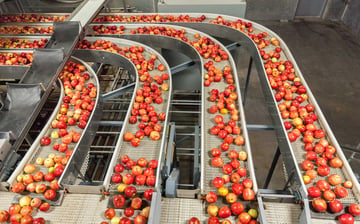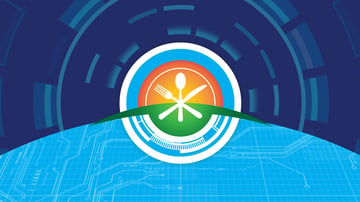Stakeholders throughout the food industry, including research groups like FoodLogiQ Labs and standards organizations like GS1, have been evaluating how to best incorporate distributed ledger technologies into the food supply chain for years. This interest in blockchain stems from a broader effort to achieve greater transaction efficiency and interoperability between supply chain nodes, while also decreasing the risk of data corruption as goods change hands. The potential of blockchain-based food exchange to enhance inter-organization communication and supply chain transparency continues to drive development of pilot programs. New research is being conducted to shed light on the advantages and maturity of these programs.
According to a recent Gartner press release, “through 2022, 80% of supply chain blockchain initiatives will remain at a proof-of-concept (POC) or pilot stage, according to Gartner, Inc. One of the main reasons for this development is that early blockchain pilots for supply chain pursued technology-oriented models that have been successful in other sectors, such as banking and insurance. However, successful blockchain use cases for supply chain require a different approach.”
Further, “modern supply chains are very complex and require digital connectivity and agility across participants,” said Andrew Stevens, senior director analyst with the Gartner Supply Chain practice. “Many organizations believed that blockchain could help navigate this complexity and pushed to create robust use cases for the supply chain. However, most of these use cases were inspired by pilots from the banking and insurance sector and didn’t work well in a supply chain environment.”
“Today, supply chain leaders have now started to treat blockchain as part of a longer-term technology roadmap and risk management planning. We see that many leaders are adopting a broader end-to-end view across their supply chains and map all requirements – from sourcing across manufacturing to the final distribution,” Mr. Stevens added. “Having blockchain as part of an overall technology portfolio has created opportunities for internal collaboration across many areas that have a potential interest in blockchain, such as logistics and IT.”
“Many supply chain leaders that have conducted blockchain initiatives found that they now have a more complete overview of the current health of their supply chain. Their perception on how blockchain can be used in the supply chain also has shifted,” Mr. Stevens said. “By going through the process of deploying a blockchain pilot, they discovered what needs to change in their organization before blockchain technology can be leveraged effectively.”
We believe that industry leaders need to understand how to digitize supply chain events if they are to achieve blockchain-readiness, and advance data sharing capabilities within their supply chain ecosystem.
Gartner subscribers can find more information in the December 2019 “Leverage Blockchain Developments as Catalysts for Strategic Technology Planning Across the Supply Chain” report.
Gartner Press Release, “Gartner Says 80% of Supply Chain Blockchain Initiatives Will Remain at a Pilot Stage Through 2022,” 23 January 2020. https://www.gartner.com/en/newsroom/press-releases/2020-01-23-gartner-says-80--of-supply-chain-blockchain-initiativ
Tag(s):
Food Industry
Other posts you might be interested in
View All Posts
Supplier Compliance
4 min read
| June 22, 2021
FoodLogiQ Joins Industry Leaders to Advance Supply Chain Interoperability and Confirm the Value of Technical Standards
Read More
Trustwell News
6 min read
| December 17, 2021
FoodLogiQ Connect Surpassing 100 Million Critical Tracking Events
Read More
Food Safety
9 min read
| July 14, 2020

